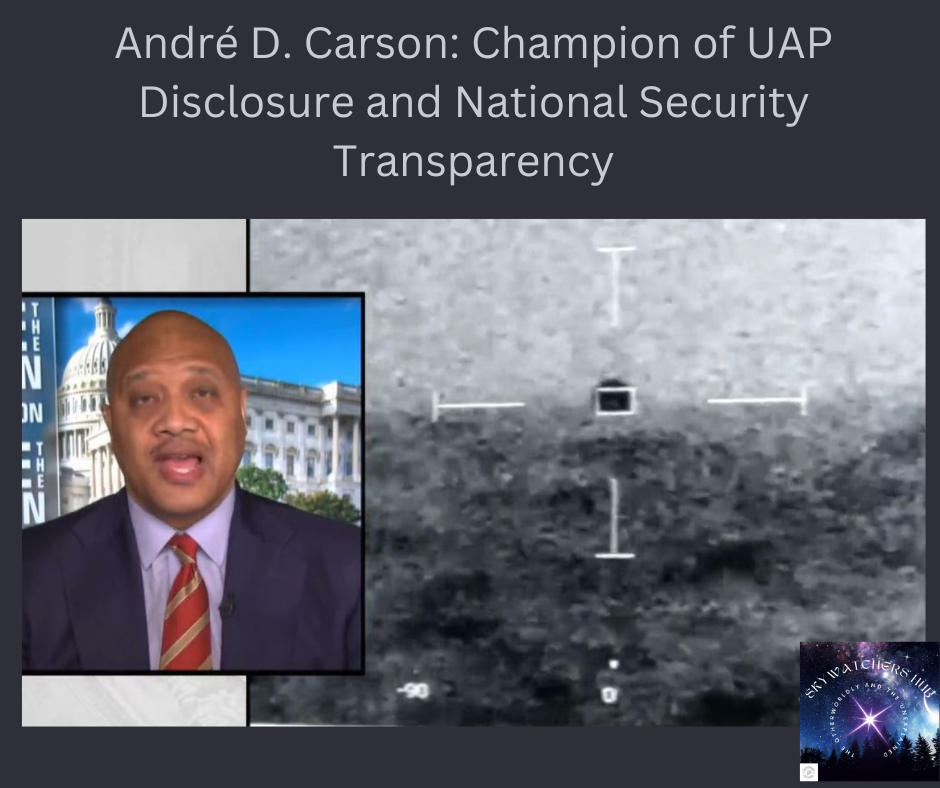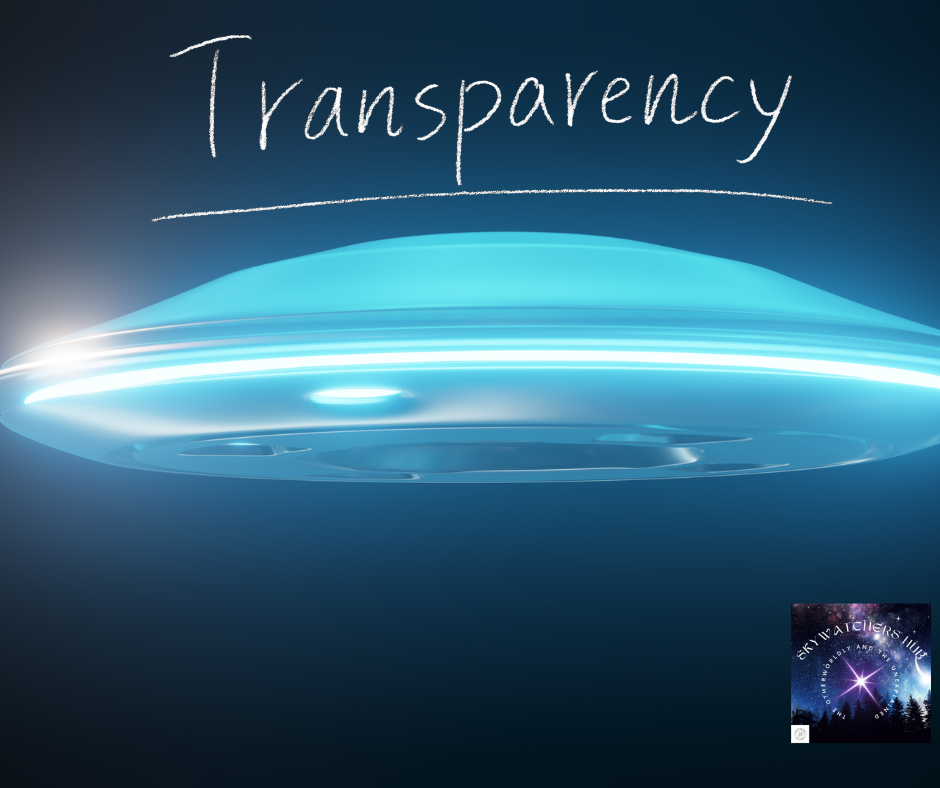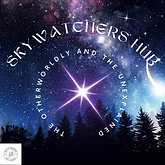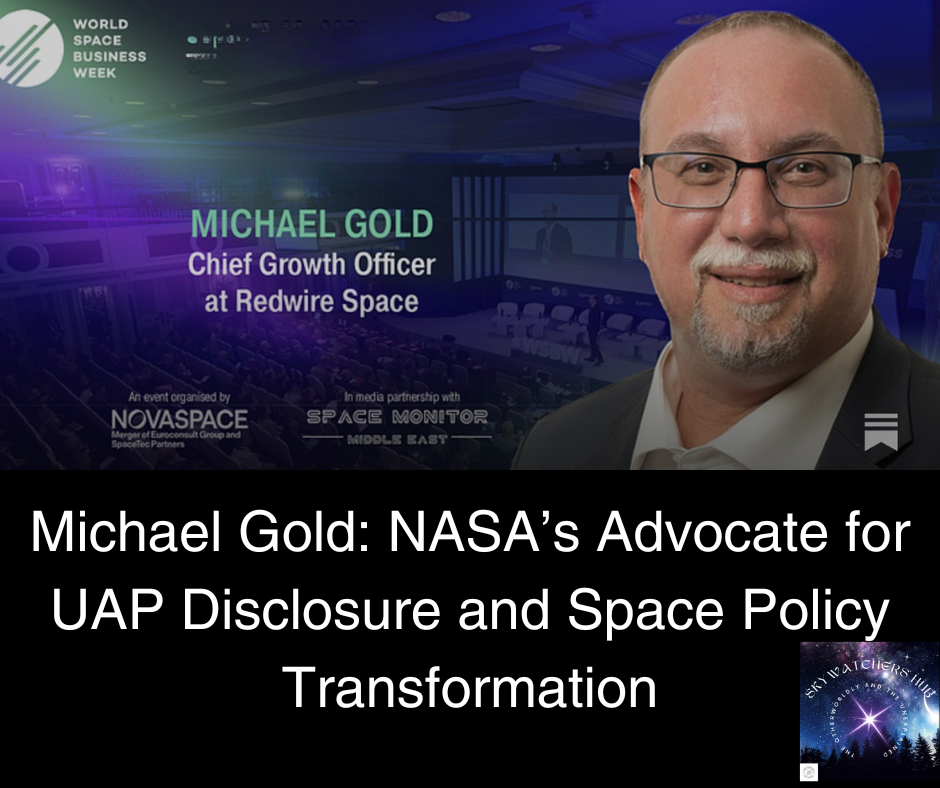André D. Carson: Champion of UAP Disclosure and National Security Transparency
- Skywatcher's Hub

- Feb 22
- 6 min read
Updated: Mar 1

André D. Carson, a distinguished American politician, is currently serving as the U.S. Representative for Indiana's 7th Congressional District. A member of the Democratic Party, Carson's political career is defined by his commitment to national security, public safety, and government transparency. With a focus on improving national defense, economic opportunities, and community welfare, Carson has built a reputation for advocating for issues that directly affect the security and well-being of the American public.
In recent years, however, Carson has become particularly notable for his work in advocating for Unidentified Aerial Phenomena (UAP) disclosure. As a member of the House Permanent Select Committee on Intelligence and House Committee on Homeland Security, Carson has found himself at the intersection of national security and the ongoing debate about UAPs, previously known as UFOs.
Carson’s interest in UAP disclosure stems from both his belief in the importance of transparency within the government and his growing awareness of the potential implications of UAPs for national security. As a politician with access to sensitive intelligence, Carson has been at the forefront of the push for U.S. government disclosure regarding these phenomena, and his involvement in this issue highlights how his career in public service has influenced his stance on UAP transparency.

A Career Built on National Security and Intelligence Oversight
André Carson's career as a U.S. Representative began in 2008 when he succeeded his late grandmother, Julia Carson, who had served as the Representative for Indiana’s 7th District. Since then, he has worked tirelessly on issues related to national security, intelligence, and law enforcement. His work on the House Intelligence Committee has allowed him to engage with some of the most sensitive matters of national security, overseeing intelligence operations and ensuring that the U.S. government stays ahead of emerging threats.
Carson’s experience on these committees has given him a deep understanding of the complexities of national security and defense operations. As someone who has closely monitored the work of intelligence agencies, Carson recognizes the critical importance of keeping the American public informed about issues that could have significant consequences for the nation’s security.

Growing Interest in UAPs
Carson’s involvement in the UAP disclosure movement is a reflection of his broader concern for transparency in government and his belief that national security challenges should be addressed head-on. Over the years, Carson has been exposed to various reports and findings related to UAPs. His role on the Intelligence and Homeland Security Committees has given him access to classified information about military encounters with UAPs and the ongoing government investigations into these phenomena.
In particular, Carson’s attention was drawn to the increasing number of military encounters with unidentified objects in U.S. airspace. As reports of UAP sightings by U.S. Navy pilots and other military personnel continued to surface, Carson became more determined to ensure that the U.S. government took these reports seriously and addressed the issue in a transparent and accountable manner.

Pushing for UAP Transparency
In 2020, following the release of the Pentagon’s UAP videos, Carson took an active role in advocating for the release of more information to the public. As a member of the House Intelligence Committee, Carson’s position allowed him to have direct influence over the government’s approach to UAPs. In the same year, the Defense Authorization Act passed a provision that required the Pentagon to compile and release a report on UAPs. Carson publicly voiced his support for the initiative, recognizing the significance of these phenomena not only as a potential security issue but also as an area that required deeper investigation and greater transparency.
Carson’s approach to UAP disclosure is based on his core belief that the American public has a right to know what the government knows about UAPs. He has emphasized that withholding information about these phenomena could have negative consequences, particularly if these objects were found to represent foreign adversaries with advanced technology. Carson has pointed out that UAPs could pose a threat to U.S. national security, especially if they are operated by adversarial nations with capabilities beyond current American technology.

Bridging the Gap Between Intelligence and Public Knowledge
Throughout his career, Carson has been a vocal advocate for intelligence reform, and his work on UAP disclosure reflects this ongoing commitment to ensuring that national security issues are not kept from the public. He believes that while some level of government secrecy is necessary for national defense, there are certain matters, particularly those that could directly affect the safety of U.S. citizens, that should be shared with the public in a transparent way.
For Carson, UAP disclosure is not just about satisfying public curiosity—it's about ensuring that the government is held accountable for its actions and decisions regarding national security. He argues that the lack of information on UAPs has created a climate of public mistrust and speculation, which can ultimately be more damaging than a transparent disclosure of what is known. As a member of Congress, Carson has used his position to ensure that UAPs remain on the government’s agenda and that the public is kept informed about new developments.

Advocating for Collaboration and Scientific Research
One of Carson’s central tenets when it comes to UAP disclosure is the importance of scientific collaboration. He has stated that the U.S. government must take a multi-disciplinary approach to studying UAPs, bringing together experts from the fields of physics, aerospace, and national security to better understand these phenomena. Carson believes that investigating UAPs will require a global effort that involves not only the U.S. government but also international partners who have similarly observed unexplained aerial phenomena.
Carson has also called for independent investigations and has shown support for organizations and individuals who seek to advance the scientific study of UAPs. His advocacy for collaboration underscores his recognition that UAPs represent a complex and multi-dimensional issue that cannot be solved through traditional government channels alone. By encouraging scientific inquiry and international cooperation, Carson is helping to foster a broader, more comprehensive approach to the UAP phenomenon.

UAPs as National Security and Strategic Imperative
For Carson, the importance of UAP disclosure extends beyond the boundaries of curiosity and even defense. He has framed the UAP issue as a strategic imperative—one that requires urgent attention to protect the long-term security and technological advantage of the United States. If foreign adversaries have access to advanced technology that the U.S. does not fully understand, it could shift the balance of power in unexpected and dangerous ways. By pushing for greater transparency, Carson hopes to ensure that the U.S. military and intelligence agencies are fully aware of the capabilities of potential adversaries and are prepared to respond accordingly.
Carson has made it clear that UAPs could potentially involve technology that has far-reaching implications for military defense strategies, scientific advancements, and even space exploration. His efforts to advocate for UAP disclosure are rooted in the understanding that national security is constantly evolving, and new challenges must be addressed swiftly and transparently.

The Future of UAP Disclosure: Carson’s Role
As the U.S. government continues its investigations into UAPs, André Carson’s involvement in the issue will continue to be an important factor in pushing for disclosure. His position on the House Intelligence Committee and his long-standing commitment to national security and transparency make him a key figure in shaping the future of UAP investigations and their eventual disclosure to the public.
Carson’s involvement in UAP transparency is likely to evolve as new developments emerge. His continued advocacy will be pivotal in ensuring that UAP disclosure remains a priority for U.S. lawmakers and that the government takes steps to provide answers to the public regarding these mysterious phenomena.

Conclusion: A Legacy of Accountability and Security
André Carson’s journey into the world of UAP disclosure is a reflection of his broader political philosophy—one that emphasizes transparency, national security, and a commitment to the truth. As a U.S. Representative with a focus on intelligence and homeland security, Carson has taken on the task of ensuring that the government does not shy away from addressing the important issue of UAPs.
By advocating for more transparency, scientific investigation, and international cooperation on the UAP issue, Carson is helping to redefine how the U.S. government engages with one of the most mysterious and potentially impactful phenomena of our time. His work in this area will likely leave a lasting impact on how UAPs are understood, investigated, and disclosed to the public in the years to come.

.png)









Comments